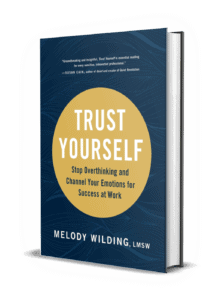You pace the floor, chewing your fingernails and asking your cat for the fourth time, “why hasn’t my manager called me back?” Your cat looks at you in disgust. Frankly, he’s sick of this particular game. The challenge of remote work paranoia is real, and once again, it has wormed its way into your mind.
Was that report you sent a disaster, just as you suspect?
That funny comment in your last email…maybe your manager took it the wrong way.
Are they about to fire you?
If this sounds familiar, then you’re not alone.
Thanks to the sudden rise in work-from-home arrangements, imposter syndrome – the persistent belief that you’re a fraud despite overwhelming evidence to the contrary – is increasing.
Why is this? There are a few reasons your imposter syndrome may be surging under quarantine:
- It can be hard to gauge nuance when feedback is given via email instead of in-person.
- Body language and facial expressions are harder to read via online meetings.
- Spending so much time alone makes it easier to get stuck in your own head. And, if you find yourself going down the “I’m not good enough” rabbit hole, it can be hard to get out.
For example, when a colleague doesn’t respond to your direct message, you don’t know whether they’re simply busy or whether you’ve inadvertently offended them. And you can’t easily pop into their office to find out.
All of this creates a fertile breeding ground for insecurity and self-doubt. As you over-analyze feedback and online interactions with colleagues, you begin to feel paranoid that you aren’t measuring up.
Why the Challenge of Remote Work is Harder for Sensitive Strivers
As a Sensitive Striver, you’re naturally kind-hearted. This can mean you’re prone to doing whatever you can to keep everyone happy.
You frequently agree to tasks that don’t fall under your remit. You offer a helping hand when others are struggling with their workload.
Typically you know your actions are appreciated through verbal validation, nods of approval, regular feedback, and body language. All of which can be hard to pick up over Zoom, patchy phone calls, or infrequent emails.
The resulting fear may lead to:
- Overcompensate by saying “yes” to every single meeting request so people know that you’re a team player.
- Feel exhausted from working longer hours –– especially because you’re not convinced you’re providing value.
- Forego healthy work/life boundaries and always be “on”, thinking about work even after hours.
The good news: it’s possible to stop remote work paranoia in its tracks.
4 Steps to Overcome Remote Work Paranoia
Be explicit
It’s always a good idea to have explicit conversations about expectations in the workplace, especially where they concern communication, decision making, and working style. But it’s doubly important when you’re working remotely.
For example, think about getting feedback from your boss. If you’ve had a high-level conversation about what to expect in terms of when and how their input will be delivered, you won’t be shocked to receive a document with lots of red-lining. It’s less likely to hurt your ego because if you already know that your boss is particularly detail-oriented.
Similarly, ask your colleagues to let you know in advance if they’re going to be offline at certain times of the day so you know not to expect a response. This will prevent you from worrying that they’re secretly mad at you.
When you have open conversations like these, everyone knows where they stand and paranoia is far less likely to take hold.
Watch your own scope creep
Be aware: imposter syndrome, insecurity, and fear often drive to scope creep. These emotions can lead you to say “yes” to everything – from that extra meeting to an additional project that you don’t really have the time to complete. You assume that if you do more, then it means you’re providing more value. But typically this backfires, leaving you exhausted and resentful.
You can temper this tendency by being clear about what you need and assertively asking for help, whether it’s extra resources, an extended deadline, or an additional team member. Don’t be afraid to tell people “no” or ask them to help you prioritize what’s important.
Depersonalize others’ actions
As a Sensitive Striver, your empathy levels are probably off the charts — and that can be both a gift and a curse.
On one hand, it can lead you to take other people’s behavior too personally. You might misread a throwaway comment as an insult, for example.
On the flipside, Sensitive Strivers are inherently brilliant at seeing alternative viewpoints, anticipating problems, and connecting with others.
So let’s channel that superpower for good.
The next time you assume that your boss seems upset about the progress of your most recent project, step into their shoes. Ask yourself what else might be going on if you look beneath the surface.
You’ll likely realize that, contrary to your first thought, it’s probably not because you’ve done something wrong. For example, maybe your boss is drained because they’re trying to deal with kids at home. Or perhaps they’re stressed about something their boss just said.
Using your empathic superpowers to step into the other person’s experience will stop you from personalizing their behavior.
Internalize your accomplishments
When was the last time you gave yourself credit for all of the amazing results you’ve achieved?
You may struggle to internalize your wins, meaning you never feel good enough – like you don’t contribute anything of value. Being able to really take in your wins is key to overcoming paranoia, but that can be even harder to do when you’re working from home.
So what can you do? Try creating that sense of approval, support, and safety for yourself with a brag file. Put simply, a brag file is a way to document your wins: compliments you receive, times you overcame resistance, moments when you’ve achieved a small accomplishment that made you proud.
But don’t keep these accomplishments to yourself. Tell others about the wins you’ve had with your team. Acknowledge the hard work you’re doing and don’t be shy about sharing it in your updates to senior leaders. Own your brilliance.
While it looks like remote working is here to stay, you don’t have to accept paranoia as an inevitable part of the package. By recognizing and acknowledging the increased risk of misunderstandings, missed communication, and the challenges of this new way of working, you can work towards bridging the gaps so you have exactly what you need to feel comfortable, confident, and empowered in your new working environment.









